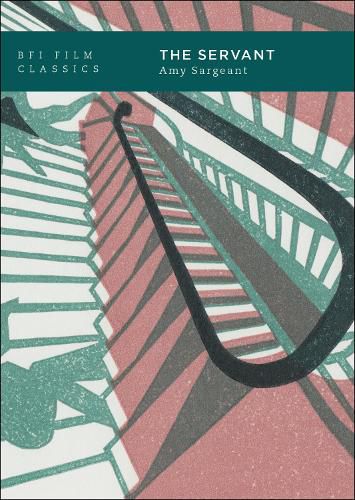Readings Newsletter
Become a Readings Member to make your shopping experience even easier.
Sign in or sign up for free!
You’re not far away from qualifying for FREE standard shipping within Australia
You’ve qualified for FREE standard shipping within Australia
The cart is loading…






Amy Sargeant’s compelling and meticulous study of Joseph Losey’s The Servant (1963) sets the film in the context of a long tradition of fictional depictions of the master-servant relationship, from Shakespeare to Cervantes, Henry James, Dorothy L. Sayers and P.G. Wodehouse. Sargeant points out that while many of these relationships are played for comic effect, that of the ‘young master’ Tony (James Fox) and his manservant Barrett (Dirk Bogarde) unfolds in a far more sinister manner, with Barrett coming to dominate and humiliate the hapless Tony.
Sargeant’s reading pays particular attention to the contribution not only of Losey and Harold Pinter, who adapted the screenplay from Robin Maugham’s novella, but also of the cinematographer Douglas Slocombe, designer Richard Macdonald and costume designer Beatrice ‘Bumble’ Dawson. She analyses the performances of Sarah Miles as Barrett’s lover Vera and Wendy Craig as Tony’s fiancee Susan, as well as those of Fox and Bogarde, and gives careful consideration to how the film uses architectural form, interior design and decoration, and clothing to establish character and relationships. In the context of the collapse of the British Empire, and a beleaguered Establishment beset by spy and sex scandals, the film can be read, Sargeant argues, as a metaphor for the ‘state of the nation’ in the early 1960s.
Finally, Sargeant considers the film’s critical and commercial reception in Britain, Europe and the United States - its release, how it was received as one of a number of ‘emigre’ films, and Losey’s surprising denial of a homoerotic intent in the Tony-Barrett relationship.
In her new foreword to this edition, Amy Sargeant considers contemporary resonances of the film’s depiction of a twisted master-servant relationship in recent TV and cinema including The Crown, Downton Abbey and The Trial of Christine Keeler.
$9.00 standard shipping within Australia
FREE standard shipping within Australia for orders over $100.00
Express & International shipping calculated at checkout
Amy Sargeant’s compelling and meticulous study of Joseph Losey’s The Servant (1963) sets the film in the context of a long tradition of fictional depictions of the master-servant relationship, from Shakespeare to Cervantes, Henry James, Dorothy L. Sayers and P.G. Wodehouse. Sargeant points out that while many of these relationships are played for comic effect, that of the ‘young master’ Tony (James Fox) and his manservant Barrett (Dirk Bogarde) unfolds in a far more sinister manner, with Barrett coming to dominate and humiliate the hapless Tony.
Sargeant’s reading pays particular attention to the contribution not only of Losey and Harold Pinter, who adapted the screenplay from Robin Maugham’s novella, but also of the cinematographer Douglas Slocombe, designer Richard Macdonald and costume designer Beatrice ‘Bumble’ Dawson. She analyses the performances of Sarah Miles as Barrett’s lover Vera and Wendy Craig as Tony’s fiancee Susan, as well as those of Fox and Bogarde, and gives careful consideration to how the film uses architectural form, interior design and decoration, and clothing to establish character and relationships. In the context of the collapse of the British Empire, and a beleaguered Establishment beset by spy and sex scandals, the film can be read, Sargeant argues, as a metaphor for the ‘state of the nation’ in the early 1960s.
Finally, Sargeant considers the film’s critical and commercial reception in Britain, Europe and the United States - its release, how it was received as one of a number of ‘emigre’ films, and Losey’s surprising denial of a homoerotic intent in the Tony-Barrett relationship.
In her new foreword to this edition, Amy Sargeant considers contemporary resonances of the film’s depiction of a twisted master-servant relationship in recent TV and cinema including The Crown, Downton Abbey and The Trial of Christine Keeler.